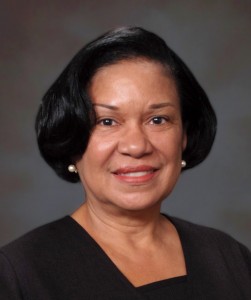Advice
Job Seeker’s Market on the Horizon: What Does Your Future Hold?
Editorial TeamB eth N. Carvin is CEO of Nobscot Corporation, which makes exit interview management software. She has more than 20 years of business management and HR experience.
eth N. Carvin is CEO of Nobscot Corporation, which makes exit interview management software. She has more than 20 years of business management and HR experience.
Reasons Why Co-Workers Don't Like You
Editorial Team Are you a slob and a suck-up? Do you ooze negativity, talk too loudly or eat stinky food? This article says co-workers are judging you. Beneath a veneer of professional collegiality, they’re taking note of the mess on your desk, how loudly you chew, even your word choices. Small irritants can hurt productivity and build walls between co-workers.
Are you a slob and a suck-up? Do you ooze negativity, talk too loudly or eat stinky food? This article says co-workers are judging you. Beneath a veneer of professional collegiality, they’re taking note of the mess on your desk, how loudly you chew, even your word choices. Small irritants can hurt productivity and build walls between co-workers.
Are We More Career Driven Than Men?
Editorial Team 1Young wo men have already passed young men in education. Now, they appear to be more career-driven, too, says a new survey. But women also say marriage and parenthood remain key life goals. About two-thirds of women between ages 18 and 34 cited a high-paying career among their top life priorities, compared with just 59% of young men, the Pew Research Center in Washington said. That was a reversal from 1997, when 56% of women rated a high-paying career high on their list of priorities, less than the 58% of men surveyed back then, according to Pew. The research is based on phone surveys of 1,181 women and 1,308 men.
men have already passed young men in education. Now, they appear to be more career-driven, too, says a new survey. But women also say marriage and parenthood remain key life goals. About two-thirds of women between ages 18 and 34 cited a high-paying career among their top life priorities, compared with just 59% of young men, the Pew Research Center in Washington said. That was a reversal from 1997, when 56% of women rated a high-paying career high on their list of priorities, less than the 58% of men surveyed back then, according to Pew. The research is based on phone surveys of 1,181 women and 1,308 men.
Your Work Future? Expect Multiple Careers
Editorial Team In her book, Society 3.0, Dr. Tracey Wilen-Daugenti of Apollo Research Institute explores how rapid technological advancements are transforming the workplace and the worker. We asked her Five Questions:
In her book, Society 3.0, Dr. Tracey Wilen-Daugenti of Apollo Research Institute explores how rapid technological advancements are transforming the workplace and the worker. We asked her Five Questions:
1) You write that American workers must face a truth: lifelong employment is no longer guaranteed. In practical terms, what does this mean?
People are living longer. According to the Centers for Disease Control and Prevention, life expectancy in the United States has been on the rise for the last decade. Some experts predict people will soon be living to age 100. This means that not only are people living longer—they are also working longer.
According to the Wall Street Journal, many people will work into their 70s and 80s to be able to afford retirement. As part of our ongoing study of women in the workplace, we share this statistic with participants and ask: what does this mean to you?
What we consistently hear is that women realize they must stay educated, healthy and employed to be able to support themselves over a longer lifespan.
With increasing life expectancies, it is not unlikely that a person’s career could span 50-60 years compared to our parents’ 20-30 year careers. On a practical level, people can and probably will have multiple careers, and given economic cycles and market changes, it is unlikely they will stay with one employer unless they are self-employed.
Read More
Banking As a Career Option
Editorial TeamDonna Smith, a commercial banking executive with Associated Bank, Chicago, has more than 30 years experience in the banking industry. We talked to her about careers.
1) Banking has been a male-dominated industry since its inception. What drew you to it?
I’ve always enjoyed finance and I was drawn into banking because I knew it would allow exposure to an array of companies, industries and corporate cultures.
Through my work early in my career, I found a passion for working with middle market companies to help them establish goals and grow their business. That passion continues to drive me today. Obviously, there are more male than female employees at many banking institutions, but I’m not sure I’m willing to say it’s still “male-dominated.” Women in my generation have made amazing progress in our industry and are now beginning to fill some the industry’s most prestigious top level positions.
2) You’ve seen women in corporate environments succeed and fail. What traits do women who succeed have in common?
Read More
Workplace Tension: Moms Verses Singles
Editorial Team 1 As the workplace has become increasingly family-friendly over the years, an unintended consequence: complaints from childless workers — typically women — that they’re leaned on to pick up the slack for those whose attention is divided between work and family. Is this an issue in your workplace? Let us know.
As the workplace has become increasingly family-friendly over the years, an unintended consequence: complaints from childless workers — typically women — that they’re leaned on to pick up the slack for those whose attention is divided between work and family. Is this an issue in your workplace? Let us know.

